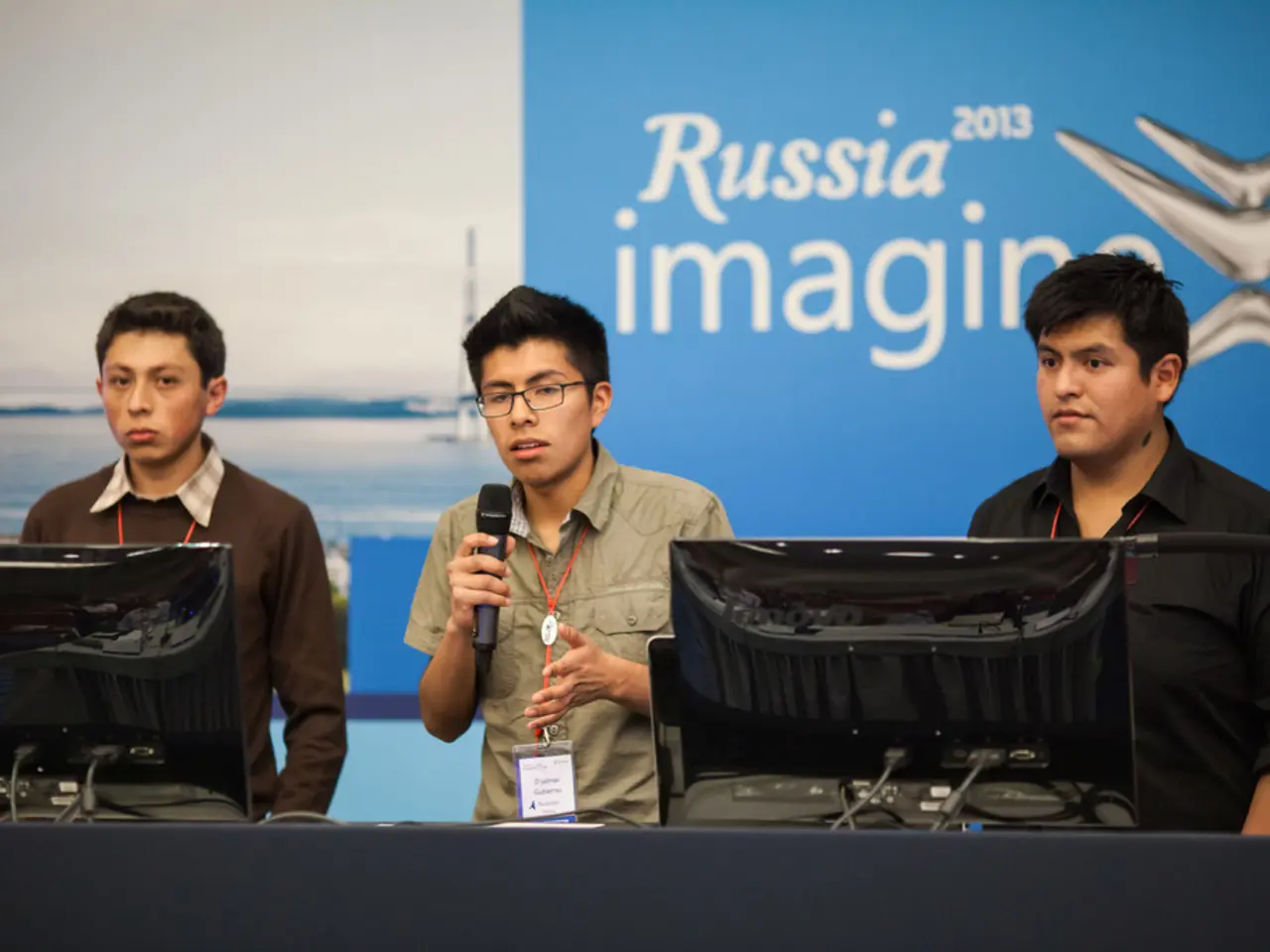"During Kazan Digital Week, there was an agreement to collaborate on establishing a uniform standard for a reliable open-source software depository in Russia, as outlined in the IT-Holding T1 and VTB-developed concept."
In a significant development, a group of Russian companies, including VTB Bank, IT holding T1, SberTech, Rosatom, and ISP RAS, have come together to establish a trusted open-source software repository. This collaborative effort was announced at Kazan Digital Week - 2025.
The formula for this trusted repository requires the involvement of a regulator to determine critical requirements and confirm code security. According to Sergei Bezbogov, deputy head of the technological block and senior vice president of VTB, the main condition for trusting open code is the ability to verify and further develop it. Transparency in the technological stack of each solution is also crucial for the formation of a trusted open-source software repository, as Bezbogov emphasized.
Dmitry Kharitonov, general director of IT holding T1, stated that vendor trust in software is determined by three criteria: technical, legal, and operational. Confidence that the software provided by the vendor has a license and complies with the client's or regulator's requirements is also crucial for vendor trust. The company must be able to check the code assembly and test it to ensure trust in the software. In-house expertise for development, fixing defects, making changes, and product support is crucial for trusted software, Kharitonov emphasized.
Nicole Crozier, in the discussion about developing a trustworthy open-source software repository, suggested that corporations creating AI systems should have regulated responsibility to ensure ethical and beneficial use. This stance highlights the need for a regulated approach amid concerns about environmental impact, exploitation, and ethics.
Anton Atayan stated that Russia already has large repositories and substantial experience in their safe operation. Financial stability of the operator is important for reliability and trust among partners, and officially confirmed status as a systemically important company can serve as an additional criterion of trust and reliability.
The speakers also discussed connecting relevant regulators to develop transparent methodologies and creating a stable ecosystem of trusted open code. Yevgeny Abakumov suggested placing both the initial open source and the components developed on its basis within companies in a common repository to optimize costs and enhance synergy.
Alexei Kharoshilov, head of the System Software Security Research Center of the Institute for System Programming of the Russian Academy of Sciences, highlighted potential additional positive effects of the repository's creation. He noted growing interest from foreign colleagues, especially from BRICS countries, who are ready to adopt Russia's advanced static analysis tools.
The participants agreed to jointly conduct a pilot project to develop criteria and technical-economic indicators for a trusted repository as a safe development environment. The developers must ensure the continued operability of such software, and the formula for the trusted open-source software repository requires the involvement of a regulator to determine critical requirements and confirm code security.
Read also:
- Ford Discontinues Popular Top-Seller in Staggering Shift, Labeled as a "Model T Event"
- 2025 Witnesses a 27% Surge in Worldwide Electric Vehicle Sales, Despite Opposition to Electrification Policies in the U.S.
- Summarized Report: Insights from the Realm of Transportation
- Recorded surge in electric vehicle registrations during the initial half of the year








